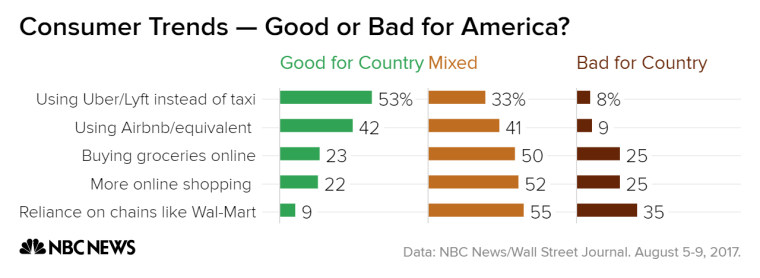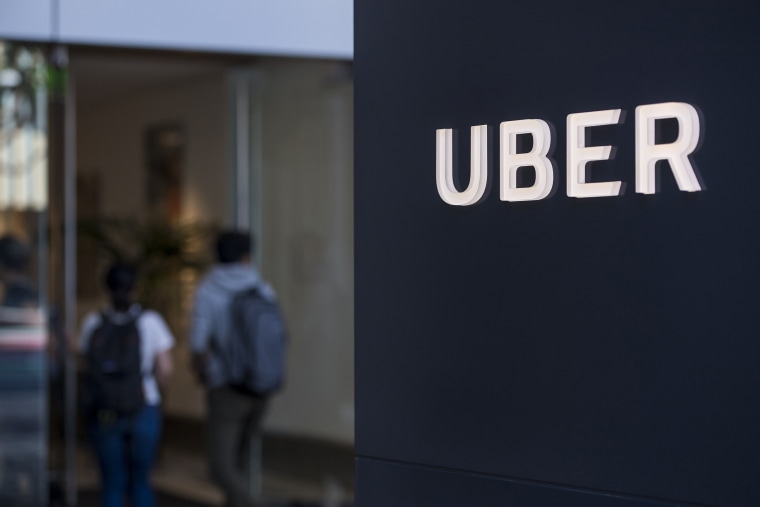A majority of Americans say that ride-sharing services like Uber and Lyft are good for the country, but they are less positive about online shopping for groceries and merchandise — at the expense of traditional supermarkets and department stores, according to a new national NBC News/Wall Street Journal poll.
Fifty-three percent of respondents say that the ability to hire someone to drive you through Uber or Lyft — instead of a taxi — has been good for the country, versus 8 percent who say it has been bad. Another 33 percent have a “mixed” reaction.

Meanwhile, 42 percent say that staying at someone’s home through Airbnb or some other service — rather than using a hotel or motel — is good for the country; 9 percent say it’s bad; and 41 percent are mixed.
Yet Americans aren’t as confident when it comes to online shopping.
According to the poll, 23 percent say the trend of buying groceries online — instead of at the supermarket — has been positive, versus 25 percent who say it has been negative, and another 50 percent who are mixed.
In addition, 22 percent say that online shopping via Amazon and other online retailers that has reduced the number of department stores and shopping malls has been good for the country, compared with 25 percent who think it has been bad.
And only 9 percent believe it’s positive that large chain stores like Wal-Mart and Target have reduced the number of smaller stores, versus 35 percent who think it’s a negative.
The NBC/WSJ “Social Trends” poll was conducted August 5-9 of 1,200 adults — nearly half of whom were reached by cell phone — and it has an overall margin of error of plus-minus 2.8 percentage points.

